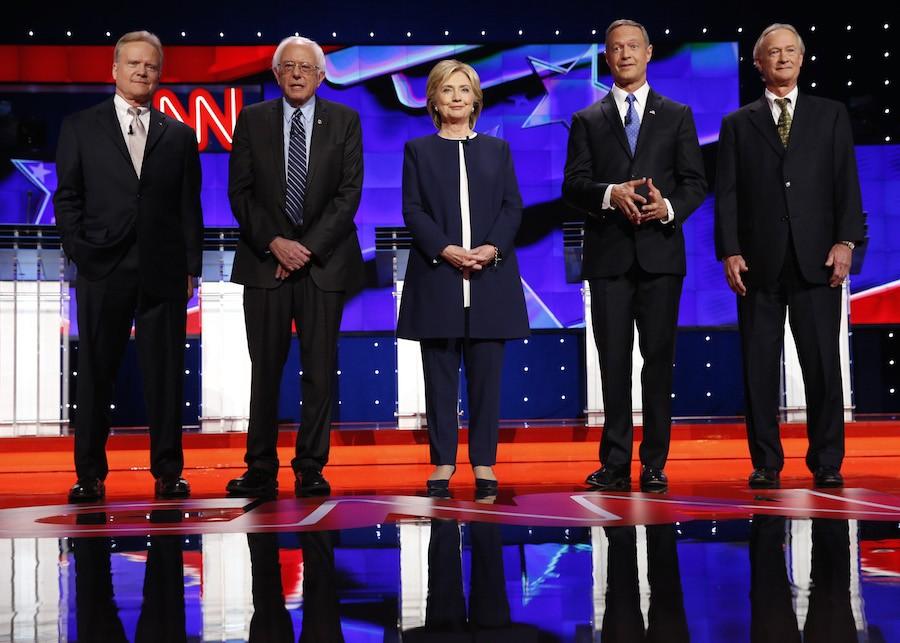Summary: Democratic Debates
From left, Democratic presidential candidates Jim Webb, Bernie Sanders, Hillary Rodham Clinton, Martin O’Malley and Lincoln Chafee on the debate stage on Tuesday, Oct. 13, 2015, in Las Vegas. (Josh Haner/NYT/Pool via Zuma Press/TNS)
October 21, 2015
On Oct. 13, the Democratic party held their first debate, which was hosted by CNN. The five Democratic nominees discussed all the hot button issues, such as income inequality, gun control, and foreign policy. This debate was much different than the one that goes on on the other side of the aisle, there was no yelling, no trash talking, and no name calling. There was solid policy debate, emphasising the differences between the different candidates.
In the middle of the stage was frontrunner, former Secretary of State Hillary Clinton. Next to her, was Vermont Senator Bernie Sanders. On their opposing sides were the lesser known candidates, Governor of Maryland Martin O’Malley, former Secretary of the Navy Jim Webb and former Rhode Island Senator Lincoln Chafee. The debate started with moderator Anderson Cooper letting the candidates introduce themselves, before the hard issues were started. Most candidates explained their background and spoke on their personal life. Senator Sanders, however, jumped directly into policy, explaining his views on income inequality and making sure that the viewers know he’s serious about it.
Tensions rose at points of the debate, such as when Chafee remarked on how Clinton shouldn’t be trusted, her response was simply “No”. Clinton’s emails were the topic of many questions, and many opening statements; candidates stating that they believe politicians should be “responsible and trustworthy”. At one point, Senator Sander’s who was obviously annoyed, remarked “We are sick of hearing your damn emails.” Thus quickly shutting down anymore comments about the issue, and creating an almost visual bond between the two candidates as they shook hands.
Throughout the debate, Cooper asked the candidates hard questions and didn’t let them get away with not answering the question. Each candidate was asked about their enemies, their biggest setbacks, and what they think will hinder them from not only receiving the nomination but also the presidency.
Since the debates, Jim Webb has dropped out of the race, and is debating an independent run. On October 21, Vice President Joe Biden announced that although he has been polling well, he will not be pursuing a run for the presidency.
This first debate gave an idea of the platforms the Democrats will be running on this year, and introduced them to the general public, since many of them are not well known. The next debate will be held on Nov. 14, in Des Moines, Iowa.

